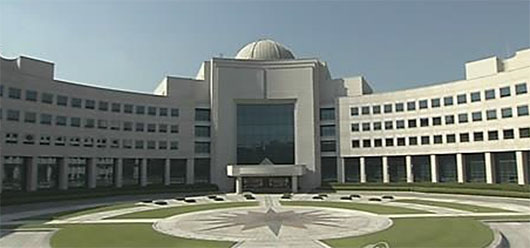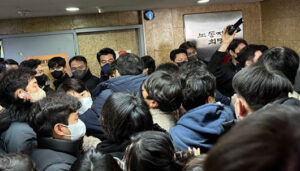FPI / February 8, 2023
South Korean intelligence, in a joint effort with prosecutors and police, has launched an investigation into a massive North Korean spy network that has long been active nationwide.

The National Intelligence Service (NIS) must complete the investigation by Dec. 31 of this year before it is to hand over in 2024 the right to investigate espionage cases linked to North Korea to the police. The change was mandated in a law revision passed in 2020 in the closing days of the administration of leftist President Moon Jae-In.
“A major spy scandal has been brewing for more than 5 years in South Korea,” Yonhap reported on Feb. 6.
The NIS plans to operate the interagency team to look into suspected violations of the National Security Act. Thus far, the team has reportedly discovered spying activities in several cities, including Seoul.
The North Korea spying network reportedly created an underground organization in the Changwon-Jinju area, where the South’s defense companies are concentrated.
The East Asia Research Center compiled a comprehensive report on the many fronts of the investigation, a few of which follow:
“In various regions of the Republic of Korea, underground organizations directed by North Korea were uncovered,” the report said. “The authorities conducted search and seizures of suspects simultaneously in Jeju, Changwon, Jinju, and Jeonju in October and November 2022. In Changwon, South Gyeongsang Province, which also extended to nearby Jinju, the underground organization discovered is called Jaju Tongil Minjoong Jonwi (People’s Vanguard for Independent Unification).
“Since 2016, the suspected spies in the underground organization People’s Vanguard for Independent Unification met with North Korean espionage agent Kim Myung-Sung, an operative from the Cultural Exchange Bureau (Munhwa Goryuguk), in Southeast Asian countries, including in Angkor Wat in Cambodia, and received orders to set up an underground organization(s).”
The People’s Vanguard for Independent Unification implemented the orders of the Cultural Exchange Bureau to expand the underground organizations’ field of activities by recruiting people and indoctrinating the younger generation through infiltrating mass organizations, such as the KCTU and the Korean Federation of Peasants.
Former and current officials of the Korean Confederation of Trade Unions (KCTU) met with North Korean agents several times abroad to implement orders to establish “underground organizations,” the report said.
The KTCU is an umbrella organization of other labor unions. It is the largest labor entity in South Korea, with over 1.25 million paying members.

The KTCU often conducts demonstrations and activities that are beyond labor issues, including demanding the withdrawal of U.S. forces from Korea, demanding abolishing the National Security Act, and partaking in candlelight demonstrations which were performed to oppose the beef imports from the U.S., citing Mad Cow disease that never materialized in imported U.S. beef, and impeaching President Park Geun-Hye.
The East Asia Research Center reported that, on Jan. 18, South Korean authorities conducted search and seizure operations at 10 locations related to KCTU.
“KCTU members blocked entry, screamed, and fought against the authorities, delaying the search and seizure,” the report said.
“KCTU even posted videos of it, trying to gain sympathy by accusing the government of suppression, but the NIS and the police have proof of these KCTU officials meeting with North Korean agents multiple times in third countries, and establishing anti-state underground organizations per instructions from North Korea, specifically through the Cultural Exchange Bureau of the Workers’ Party’s United Front Department.”
Full Text . . . . Current Edition . . . . Subscription Information
Free Press International
